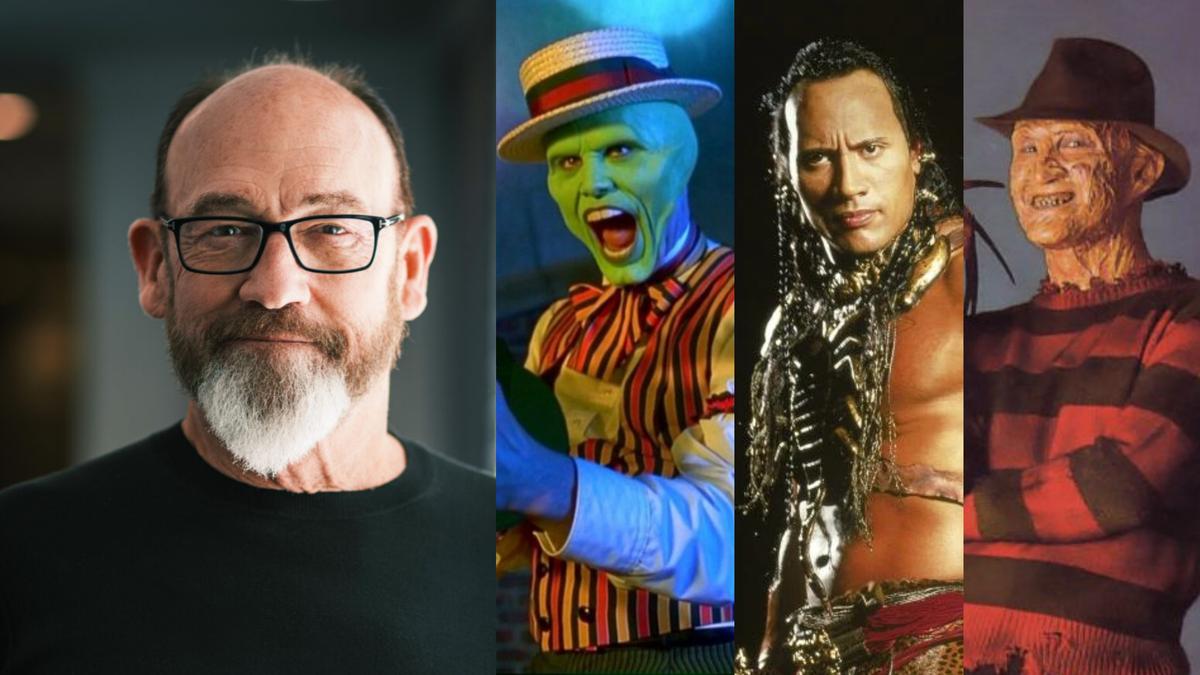
IFFI 2024 | Director Chuck Russell interview: On a death battle between The Mask, The Scorpion King and Freddy Krueger
The Hindu
Chuck Russell, the filmmaker behind films such as ‘The Mask’ and ‘The Scorpion King,’ talks about the art of reimagining old horror scripts and extracting performances from stars like Arnold Schwarzenegger and Dwayne Johnson
If Chuck Russell could, he would make a movie about film fanatics burning film critics at the stake, and make it the most hilarious horror comedy of the 21st century! This outrageous assumption comes from my hilariously candid chat with the American filmmaker behind wacky titles such as The Mask, The Scorpion King, The Blob, and more. Sitting down with The Hindu after a session at the 55th International Film Festival of India (IFFI) in Goa, Russell is at his spontaneous best.
“Let’s first kill the critics. Remember, they are called critics, so they think their job is to be mean and critical. The real question is, are the audiences seeing the films?” poses Russell.
I had just stated how attempts from young Indian filmmakers to speak in an under-explored genre, such as pure-genre horror, are often scrutinised as mere emulations of the West. Whether it’s a serial killer or military killing, he says, the human condition of being fascinated with murder is universal, something that makes pure genre horror universally appealing. An advocate for lesser-explored sub-genres in horror, Russell stresses watching horror as a cathartic experience. “If you can face death in a film, and walk out with your arm around your girlfriend, everything’s okay. I believe that horror and comedy release endorphins.”
In over 40 years of making Hollywood movies, most of which are cult-classic adaptations or remakes, Chuck Russell has become notorious for putting the wildest of spins on the source material. Take The Mask for instance; with the help of Jim Carrey’s genius, Russell put a hilarious new twist on Mike Richardson’s green cartoonish troublemaker. Russell says he never imagined it would become the pop-culture phenomenon it turned out to be.
“Here’s what happened: as a young producer, I did a movie called Back To School with Rodney Dangerfield. It was a big hit in America, and I thought I had become a hot young producer, but it tanked overseas. So I wanted to do a comedy as a director — I wanted it to go universal and I wanted it to need no language.” Jim Carrey’s hyper-enthusiastic slapstick school of acting, to Russell, seemed similar to great silent film stars like Buster Keaton and Harold Lloyd. “I thought that silent humour — with music and inspiration from Looney Tunes and all that — could play in different languages and succeed where I failed in my other film.”
You can never make Russell do a remake he isn’t fully convinced about. “I was once offered a Luc Besson action movie remake. Why would I do that? Luc Besson is still alive! I only remake if something can be improved upon.” And he found that X-factor in each of what he calls his trilogy of experiments in the classic horror genre — “it so happens that the Elm Street series at that time,” Russell directed A Nightmare on Elm Street 3, “The Blob from the original, and Witchboard are great basic ideas that I can explode with modern technology and modern characters.” Witchboard, which premiered earlier this year at the Fantasia International Film Festival, is a remake of Kevin Tenney’s 1986 film. The film, he adds, was his last of such remake experiments.
Given his history with remakes and adaptations, one is naturally intrigued by how he decides what to reimagine and what to discard.













